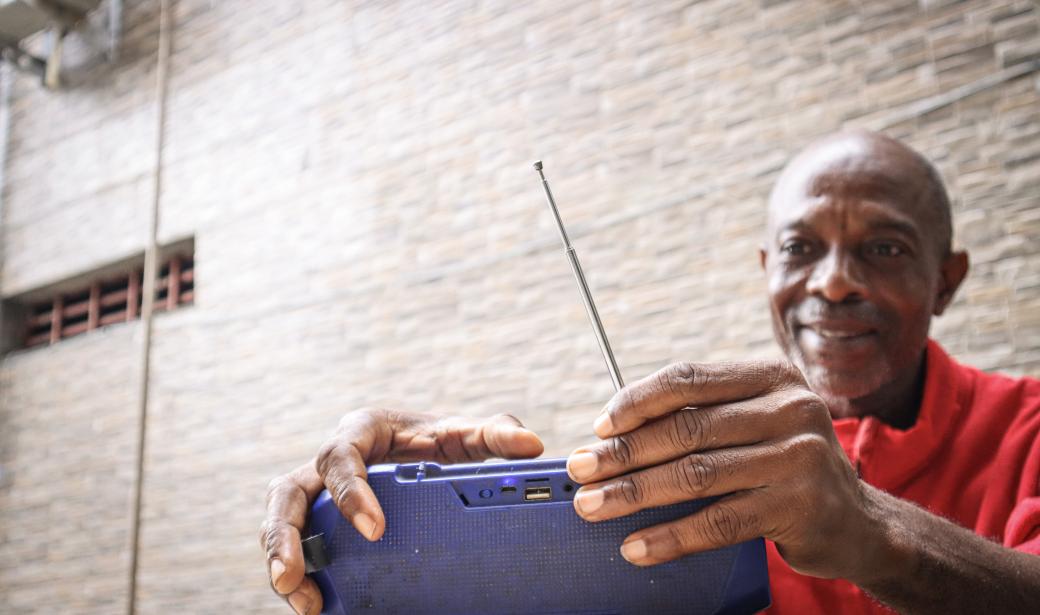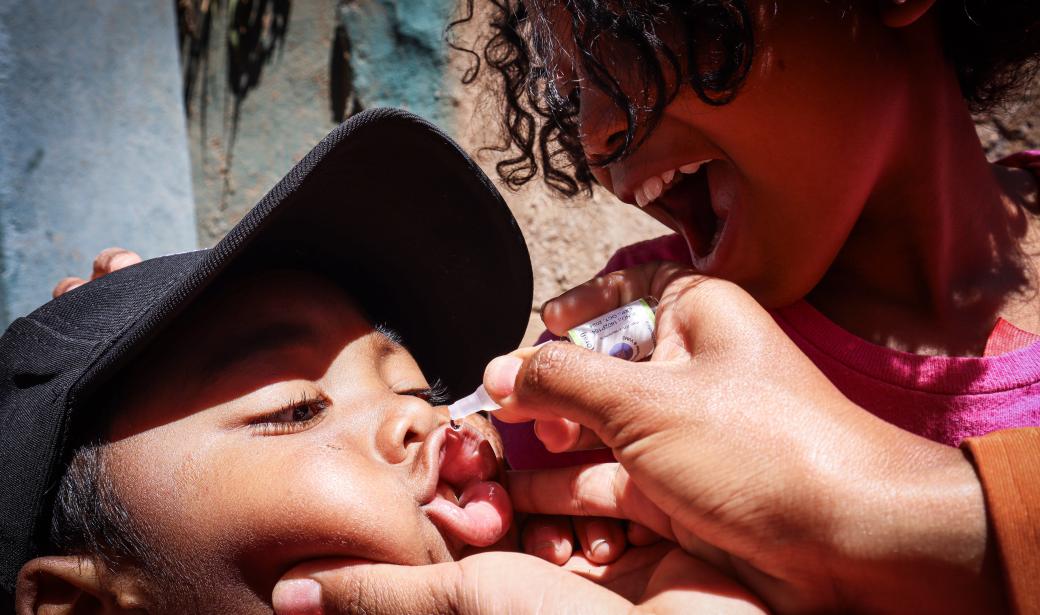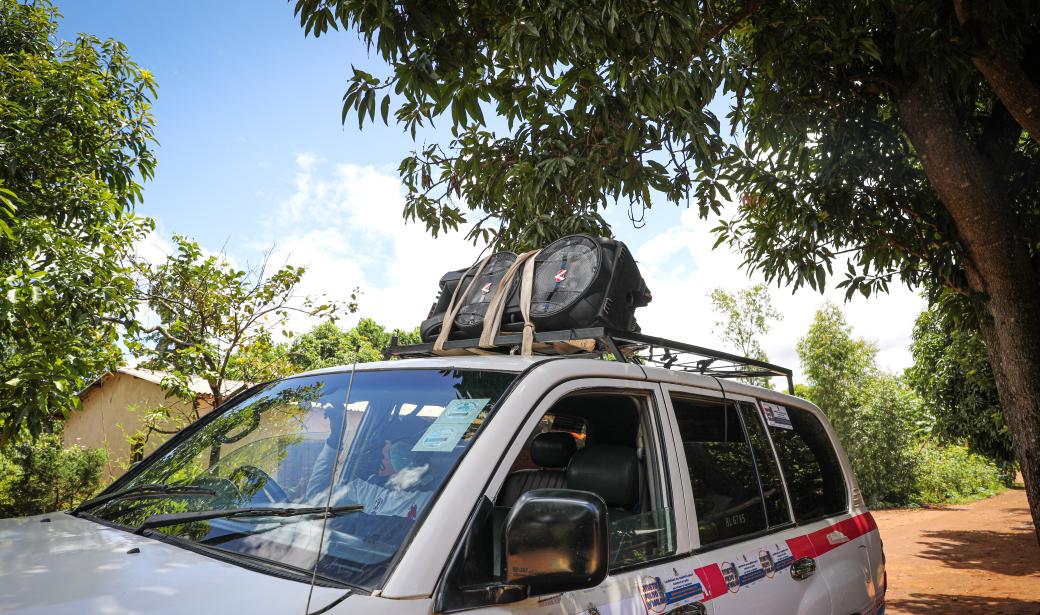Maputo – “I wouldn’t have known about the dangers of polio if it weren’t for my small radio,” says Faize Mobate, a guard at a residential compound near Matola, on the periphery of Maputo in Mozambique.
And that is because of the commitment of people like Carla Thais Matus, a journalist and broadcaster at the National Educational Radio and Television of Mozambique's Institute of Social Communication (ICS). She prides herself on being one of the voices working to share accurate information about polio vaccines, as Mozambique responds to recent poliovirus detections.
Vaccination against poliovirus is essential to contain the spread of the disease, which is capable of invading the nervous system and causing paralysis, or even death, within a matter of hours. Communication strategies to restore trust and promote acceptance of the vaccine are therefore essential to protect the population, not only against the virus, but also against misinformation.
And that is because of the commitment of people like Carla Thais Matus, a journalist and broadcaster at the National Educational Radio and Television of Mozambique's Institute of Social Communication (ICS). She prides herself on being one of the voices working to share accurate information about polio vaccines, as Mozambique responds to recent poliovirus detections.
Vaccination against poliovirus is essential to contain the spread of the disease, which is capable of invading the nervous system and causing paralysis, or even death, within a matter of hours. Communication strategies to restore trust and promote acceptance of the vaccine are therefore essential to protect the population, not only against the virus, but also against misinformation.
Mozambique has recorded 41 polio cases since the outbreak declaration in 2022, and Matus is happy to be able to contribute to amplifying the importance of polio vaccination campaigns. “We follow the World Health Organization (WHO) as a source of information when it comes to health messages. I communicate on the fact that we can´t cure polio, but we can prevent it with the vaccine. We also share information about the symptoms so that families are aware, especially in the northern part of the country,” she says.
Effectively communicating risks and collaborating with communities helps save lives. And in Mozambique, community radios are at the centre of community life, especially in hard-to-reach areas, where people rely on radios for information.
This work has been led by the Institute of Social Communication, based in Maputo since 1978, but with more than 80 community radio stations throughout the country (see map).
This work has been led by the Institute of Social Communication, based in Maputo since 1978, but with more than 80 community radio stations throughout the country (see map).
WHO has been working with the Ministry of Health and UNICEF to localize messaging on not only polio but also regarding the COVID-19 pandemic and other emergencies, such as the public health risks following Cyclone Idai in 2019, including the worst cholera outbreak in 20 years. Ultimately, this helps communities protect themselves from risk.
Commenting the crucial role of broadcasters who share crucial health-related advice, Dr Severin Ritter von Xylander, WHO Country Representative, says: “The broadcasters speak the local languages, they know their audiences, they are trusted and, mostly, they are the only source of information for communities.”
The 80 community radios under the ICS are able to translate and disseminate key health messages in languages including Xichangana, Xizronga, Cicopi, Cibarne, among others. ICS director Fari da Costa also notes important improvements in video production, to ensure these are created at community level to ensure better representation.
Commenting the crucial role of broadcasters who share crucial health-related advice, Dr Severin Ritter von Xylander, WHO Country Representative, says: “The broadcasters speak the local languages, they know their audiences, they are trusted and, mostly, they are the only source of information for communities.”
The 80 community radios under the ICS are able to translate and disseminate key health messages in languages including Xichangana, Xizronga, Cicopi, Cibarne, among others. ICS director Fari da Costa also notes important improvements in video production, to ensure these are created at community level to ensure better representation.
Under the leadership of the Ministry of Health, Mozambique successfully vaccinated over 23 million children under 5 against polio in the latest vaccination round. Da Costa confirms the major role played by the institute: “When the network does not reach certain communities, we take mobile units to rural areas with a loudhailer. This has a big impact because it promotes debate among community members. We also call in specialists to promote interactive programmes, so people can pose their questions directly to health experts.”
For Additional Information or to Request Interviews, Please contact:
Monge Marta Villa
Communications Officer
Polio Eradication Programme
WHO Regional Office for Africa
Email: mongem [at] who.int (mongem[at]who[dot]int)
Tel: + 34 636 04 76 79
MOREIRA Maria Da Gloria
Health Promotion Officer
Tel: +258 21492733
Email: moreirag [at] who.int (moreirag[at]who[dot]int)





